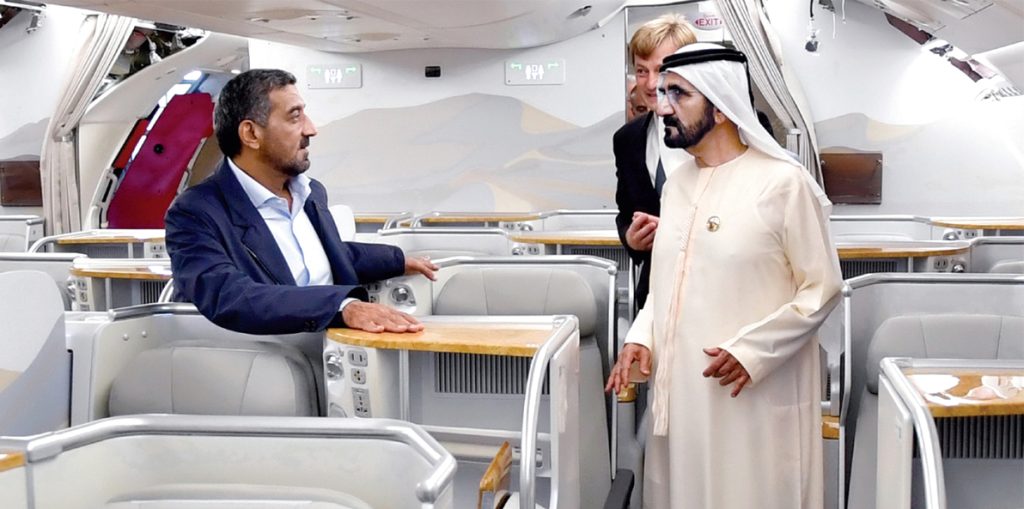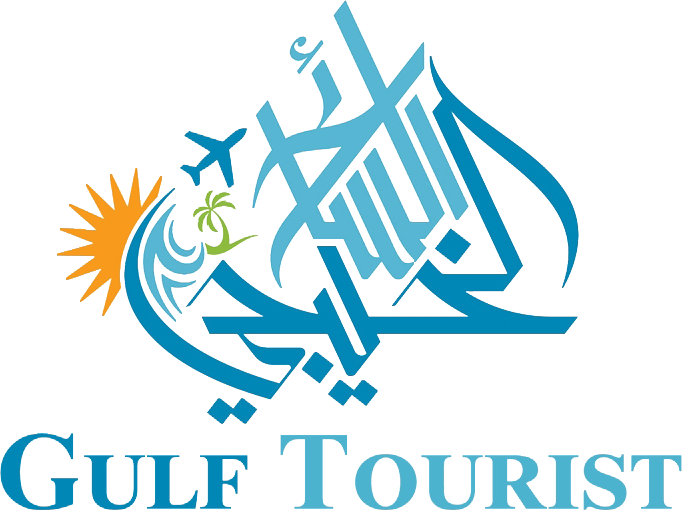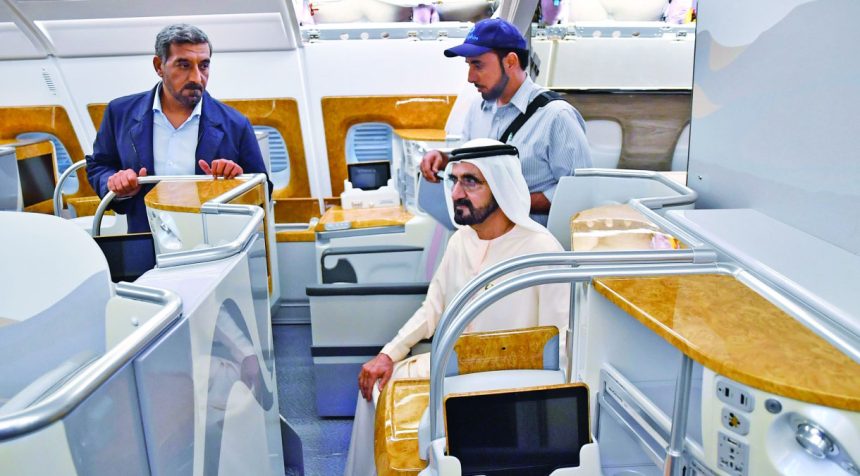Sheikh Ahmed bin Saeed Al Maktoum, the Chairman and CEO of Emirates Group, stated that Emirates Airlines has relied on the visionary leadership of His Highness Sheikh Mohammed bin Rashid Al Maktoum, Vice President, Prime Minister of the UAE, Ruler of Dubai, to establish new standards in the aviation industry and drive Dubai’s momentum, which has become a global model for success in various fields. He also emphasized the significant role played by the airline’s human resources in enhancing its global standing.
In an interview with the media on the occasion of celebrating 38 years since the first Emirates Airlines flight took off on October 25, 1985, Sheikh Ahmed pointed out that the aviation sector in Dubai, led by Emirates Airlines, is one of the key drivers of economic growth in the emirate. It plays a significant role in achieving Dubai’s economic agenda D33, which aims to double the economy and make Dubai one of the top three global economic cities by 2033.
He further explained that Emirates Airlines’ strategy is built on serving Dubai and extending its reach to regional and global markets through both short and long-haul flights. He stressed that the civil aviation sector in Dubai and the UAE has succeeded in strengthening its global position, thanks to the efforts of local aviation companies, airports, and regulatory bodies, both on the local and federal levels. Sheikh Ahmed also highlighted the strong performance of the company during the first half of the current fiscal year, which concluded on September 30.
Sheikh Ahmed highlighted that Emirates Airlines’ strategy revolves around serving Dubai and beyond, reaching regional and global markets with both short and long-haul flights. He emphasized that the civil aviation sector in Dubai and the UAE has succeeded in strengthening its global position.

“How do you view Emirates’ achievements over the past years, especially after the great success in overcoming the challenges of the COVID-19 crisis completely?
Emirates’ journey since its inception hasn’t been easy. Obstacles and challenges affect all economic sectors, including aviation. However, our ability to overcome difficulties has defined our current position among the largest and most important airlines in the world. Throughout the past 38 years, we’ve continued to set new standards in the civil aviation industry, introducing numerous products and enhancing our services to meet passengers’ needs and even exceed their expectations in delivering essential services, making their travel with us an unforgettable experience. We’ve achieved remarkable success, with Emirates becoming the largest international carrier in the world and covering six continents. We’ve also received numerous international awards for the excellence of our products and the quality of our services.
The success of Emirates would not have been possible without three fundamental factors. First, the wise leadership vision of His Highness Sheikh Mohammed bin Rashid Al Maktoum, Vice President and Prime Minister of the UAE, Ruler of Dubai, who has played a crucial role. The second key factor is Dubai itself, which has become a model for success. And the third factor is our dedicated workforce, contributing to elevating the Emirates’ name and bearing the responsibility of transporting thousands of passengers to their destinations daily.
To what extent has the carrier succeeded over the past decades in enhancing the aviation sector’s contribution to Dubai’s GDP? What is its role in achieving the Dubai Economic Agenda 2033 targets?
According to estimates from the World Travel and Tourism Council, the direct contribution of the aviation sector to Dubai’s GDP increased from AED 29.8 billion in 2021 to AED 45.8 billion in 2022, representing a 53.8% annual growth rate. The aviation sector in Dubai, led by Emirates, is one of the most significant economic growth engines in the emirate and a major contributor to achieving the Dubai Economic Agenda 2033. This agenda aims to double the economy’s size and position Dubai as one of the world’s top three economic cities by 2033.
The growth of Emirates has continued at a high pace since its establishment. There are key milestones in this journey. In your opinion, what are the most significant milestones in this growth journey?
In 1984, His Highness Sheikh Mohammed bin Rashid Al Maktoum instructed the establishment of an airline company, and by December of that year, the business plan was ready. Emirates was chosen as the name for the subsidiary company, and on October 25, 1985, our first flights took off from Dubai to Karachi and Mumbai.
In the early 1990s, Emirates became the first airline in the world to install personal video systems in every seat and class on its aircraft. Then, Emirates placed an order for seven Boeing 777 aircraft with seven options, restoring confidence in the industry, which had been severely affected by the first Gulf War.
By the end of the 1990s, Emirates’ global route network had grown to 50 destinations, and in 2000, we became the first airline in the world to place an order for Airbus A380 aircraft. This order marked the beginning of the production of this giant aircraft.
Emirates made a historic order for 42 Boeing 777 aircraft in a deal worth $9.7 billion, the largest order of its kind at the time, and subsequently expanded its orders, including Boeing 777X and Dreamliner 787 aircraft, as well as Airbus A350 aircraft.”
With the advent of artificial intelligence into various aspects of our lives, do you believe we are on the cusp of another radical change that will shape the future of the aviation industry both on the ground and in the skies?
Technological advancement, regardless of its nature or nomenclature, is an influential factor across various sectors. Today, we find that artificial intelligence plays a significant role in the operations of aviation companies, which work tirelessly to transport millions of passengers safely to their destinations, day and night.
Emirates has operated within a constantly evolving technological environment since its inception, always adopting the latest advancements. The need for adopting more technologies that enhance the precision and flexibility of airline operations will increase, given the potential to predict and adapt to variables effectively.
Artificial intelligence is increasingly utilized in the aviation industry to enhance various aspects of operations, customer service, and safety. It enables the real-time analysis of vast amounts of data to help carriers make better decisions regarding flight routes and planning, thus improving fuel efficiency and passenger safety.
It can predict the optimal timing for aircraft maintenance, reduce unforeseen delays and cancellations, and ensure safety. Airlines use AI-powered chatbots to handle customer inquiries, provide flight information, assist with reservations, and enhance customer service efficiency. AI-based systems help airlines manage baggage more efficiently.
The adoption of artificial intelligence in the aviation industry helps improve operational efficiency, reduce costs, enhance safety, and provide a better customer experience. Airlines are increasingly benefiting from AI to maintain their competitive edge and adapt to evolving passenger needs and expectations.
Emirates is known for its innovations in the aviation sector. What significant contributions can the airline make in this field for Dubai, the UAE, and the world?
The aviation sector is based on a fundamental and crucial element, which is facilitating mobility between cities and markets. This has social and economic benefits for societies worldwide. Enhancing efforts in this regard can be vital and essential.
Emirates works to strengthen the connection between Dubai, the UAE, and the world, contributing significantly to the lives of people in various markets and having a positive impact on the economies of cities and countries. This is achieved through its flights, which transport millions of people and millions of tons of goods and products, in addition to aircraft purchase orders, supply demands, and services from suppliers worldwide.
One of the main objectives of sustainability in the aviation sector is to reduce the environmental impact of air and ground operations. This includes efforts to reduce greenhouse gas emissions, with a significant focus on improving fuel efficiency. Airlines, aircraft manufacturers, and regulatory bodies consistently work on developing more fuel-efficient aircraft, optimizing flight routes, and adopting fuel-saving technologies to reduce the industry’s carbon footprint.
Emirates has conducted experiments with Sustainable Aviation Fuel (SAF), which has a lower carbon footprint compared to traditional aviation fuels. We have signed agreements to purchase quantities of SAF and are working towards blending this sustainable fuel with traditional fuel at some of our stations. We are also committed to making our ground operations, such as airport facilities and maintenance processes, more environmentally friendly and energy-efficient.
Our priorities and strategies haven’t changed since our establishment. We continue to work on connecting Dubai and the UAE with various global capitals and major cities through direct flights. We strive to enhance our services and products, providing an unparalleled travel experience for our customers. We also maintain a leadership role in adopting the latest technological advancements in the aviation industry.
Partnerships and cooperation agreements between airlines aim to facilitate passenger movements between markets, irrespective of protectionist policies that hinder seamless travel. Emirates has entered into numerous codeshare and interline agreements to enhance ease of access between cities it serves. These agreements, including recent partnerships with United Airlines and Air Canada, serve to increase accessibility to destinations in North America and improve access to markets in the region and around the world through Dubai.
Emirates currently has 29 codeshare partners, 117 interline agreements, and 11 rail and multi-modal transport partners in more than 100 countries. This provides our customers with extensive travel options, flexible schedules, seamless connections, and a wide-reaching network covering over 800 cities.
We are always delighted to see strong demand for air travel, and the orders for new-generation aircraft in the region, particularly from Saudi Arabia, India, and others, are a testament to the continuous growth of the aviation sector. Emirates welcomes competition because it drives innovation and improvement in services. Our airline was founded in a highly competitive environment, and we continue to operate in such an environment.
Airlines place orders for new aircraft to meet their future needs and serve their fleets effectively. The major aircraft manufacturers have a crucial role in meeting these demands, especially with the continuous growth in the aviation sector and the need for more modern aircraft.
As for Emirates’ half-yearly results, we’ve seen a strong demand for travel, especially as international markets reopened and people resumed traveling after a prolonged hiatus. This positive trend has contributed to the airline’s robust performance during the first half of the current fiscal year, which ended on September 30, and we will be announcing the details soon.
Emirates and flydubai share the same goal of serving the aviation sector in Dubai and promoting the city as a global travel hub. The strategic partnership between the two airlines has been successful in attracting millions of passengers from various markets, enhancing flight schedules, facilitating smooth transfers at Dubai International Airport, and providing seamless baggage transfer throughout the entire journey. The partnership has also allowed customers of both airlines to benefit from reciprocal loyalty programs through the joint Emirates Skywards program. Such collaboration has proven beneficial for passengers and the aviation industry.
Emirates encourages cooperation between Dubai-based companies, and this partnership model may serve as an example for other sectors, provided that it aligns with the specific needs and goals of the companies involved and enhances their services and offerings.
Finally, being an inspirational leader in the aviation industry and in business in general, what advice and messages do you have for the young Emirati and Arab generations, as well as ambitious professionals who aspire to make a mark in this field? The aviation sector, in all its vital areas, from operations management and engineering to air traffic control, flight crews, and administrative roles, offers significant opportunities for the young Emirati and Arab generations. With access to education and training opportunities and the promising future that the aviation sector holds with substantial growth expectations, it is essential for this generation to seize this opportunity.
Emirates Airlines needs 15,000 employees His Highness Sheikh Ahmed bin Saeed Al Maktoum, the Chairman and CEO of Emirates Airlines and Group, has continually emphasized the importance of attracting local and global talents to sustain growth and implement expansion plans. We require more than 15,000 employees during the current fiscal year, which ends in March 2024. The Human Resources Department continues to organize recruitment campaigns globally.
He added: “We have constant directives from His Highness Sheikh Mohammed bin Rashid Al Maktoum to invest in the development and qualification of UAE citizens. Emirates Airlines is committed to training UAE nationals in all sectors of the Emirates Group. We will continue our efforts to attract and develop national talents through various programs, including leadership programs, training, skills development, internal mobility opportunities to acquire diverse skills and capabilities, in addition to scholarships and internal training programs.
Request for more aircraft in the future His Highness Sheikh Ahmed bin Saeed Al Maktoum confirmed that placing orders for new aircraft aligns with Emirates Airlines’ expansion strategy in global markets. Replacing old aircraft and enhancing fleet operational efficiency is achieved by operating new, fuel-efficient aircraft, thus reducing carbon emissions.
Emirates Airlines currently boasts one of the newest and most advanced fleets in the world, consisting of 260 aircraft, all of which are wide-body aircraft such as the Airbus A380 and Boeing 777. We will start receiving Airbus A350 aircraft from mid-2024 and Boeing 777-9 aircraft in 2025. Emirates Airlines already has orders for the purchase of 200 aircraft, including Boeing 777X, Boeing 787 Dreamliner, and Airbus A350. We are in constant communication with aircraft manufacturers regarding future orders to support the airline’s fleet in the coming years. The Dubai Airshow, in which we look forward to participating in the 2023 edition, serves as our main platform for potential deals and agreements, as well as strengthening our partnerships with industry leaders.

